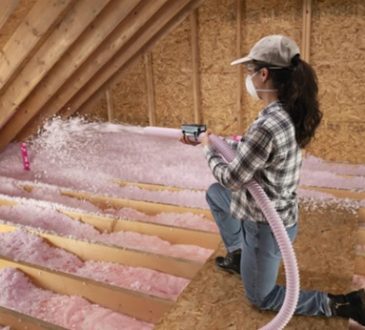
In today’s world, sustainability has become more than just a trend—it’s a lifestyle choice. As homeowners and designers seek to reduce their environmental footprint, flooring options that combine durability, style, and eco-consciousness are in high demand. Vinyl flooring, once criticized for environmental concerns, has evolved dramatically. Thanks to technological advances and a growing emphasis on green manufacturing, eco-friendly vinyl flooring is now a viable and attractive option for those committed to green living.
Understanding Vinyl Flooring and Its Environmental Impact
Vinyl flooring, also known as luxury vinyl tile (LVT) or luxury vinyl plank (LVP), is prized for its versatility, affordability, and water resistance. It mimics natural materials like wood, stone, and ceramic while providing durability that withstands heavy foot traffic. However, traditional vinyl flooring has faced criticism due to its petroleum-based materials and concerns over off-gassing volatile organic compounds (VOCs).
The good news? Many manufacturers are stepping up to address these issues by producing vinyl flooring that meets stringent environmental standards. Through innovations in materials, production processes, and recycling, vinyl flooring can be part of a sustainable home design.
What Makes Vinyl Flooring Eco-Friendly?
Eco-friendly vinyl flooring is characterized by several key features that reduce its environmental impact:
Recycled Content
Some brands incorporate recycled vinyl, plastic, or other materials into their flooring products. Using post-consumer or post-industrial recycled content reduces the need for virgin materials and diverts waste from landfills.
Low VOC Emissions
Volatile Organic Compounds can negatively impact indoor air quality. Many eco-conscious vinyl flooring products are certified for low VOC emissions by organizations such as FloorScore or GREENGUARD, making them safer for your family and the environment.
Phthalate-Free Options
Phthalates, commonly used as plasticizers, have raised health concerns. Newer vinyl flooring lines offer phthalate-free alternatives, ensuring the product is free from harmful chemicals.
Sustainable Manufacturing Practices
Leading manufacturers are implementing energy-efficient production techniques, reducing water usage, and minimizing waste. Some also use renewable energy sources in their factories.
Recyclability
Vinyl flooring that can be recycled at the end of its life cycle helps close the materials loop. Some brands even offer take-back programs to reclaim used flooring for recycling.
Top Eco-Friendly Vinyl Flooring Brands to Consider
If you’re ready to explore sustainable vinyl flooring options, here are some noteworthy brands leading the way:
Shaw Floors
Shaw’s EverStrand® line uses 37% recycled content and offers products with low VOC emissions. The company is committed to sustainable forestry practices and energy-efficient production.
Tarkett
Tarkett produces vinyl flooring with up to 70% recycled content and has developed a closed-loop recycling system called “ReStart,” which collects and reprocesses used flooring.
Mannington
Mannington’s luxury vinyl products boast phthalate-free construction and certifications for low emissions. The brand emphasizes responsible sourcing and waste reduction.
Karndean
Karndean designs vinyl flooring with durability and sustainability in mind, offering collections that use recycled materials and are 100% recyclable at the end of their lifespan.
Benefits of Choosing Eco-Friendly Vinyl Flooring
Switching to sustainable vinyl flooring offers several advantages beyond environmental responsibility:
- Healthier Indoor Air Quality: Low VOC and phthalate-free options help reduce indoor air pollutants, creating a safer environment, especially for children and those with respiratory sensitivities.
- Durability and Low Maintenance: Vinyl’s resistance to moisture, scratches, and stains means it lasts longer and requires less frequent replacement, reducing waste over time.
- Cost-Effective Sustainability: Eco-friendly vinyl options often come at a lower price point compared to traditional hardwood or natural stone, making sustainable choices accessible to more homeowners.
- Aesthetic Versatility: With advances in printing and texture technology, vinyl flooring can convincingly replicate the look and feel of natural materials without compromising sustainability.
Tips for Incorporating Eco-Friendly Vinyl Flooring in Your Home
To maximize the environmental benefits and aesthetic appeal of your vinyl flooring, keep these tips in mind:
- Choose Certified Products: Look for third-party certifications such as FloorScore, GREENGUARD Gold, or the Declare Label to verify product safety and sustainability.
- Pair with Sustainable Underlayment: Use eco-friendly underlayment made from recycled or natural materials to further enhance your floor’s green credentials.
- Plan for Proper Disposal: Check if the manufacturer offers recycling programs or local facilities accept vinyl flooring for recycling to avoid landfill waste.
- Hire Green Professionals: Work with contractors experienced in sustainable flooring installation to ensure minimal waste and proper handling of materials.
The Future of Sustainable Vinyl Flooring
The push for greener homes is driving innovation in the vinyl flooring Dubai industry. Research into bio-based vinyl materials, improved recycling technologies, and circular economy models promises even more sustainable options on the horizon. By choosing eco-friendly vinyl flooring today, you contribute to a future where beautiful, durable floors and environmental stewardship go hand in hand.




